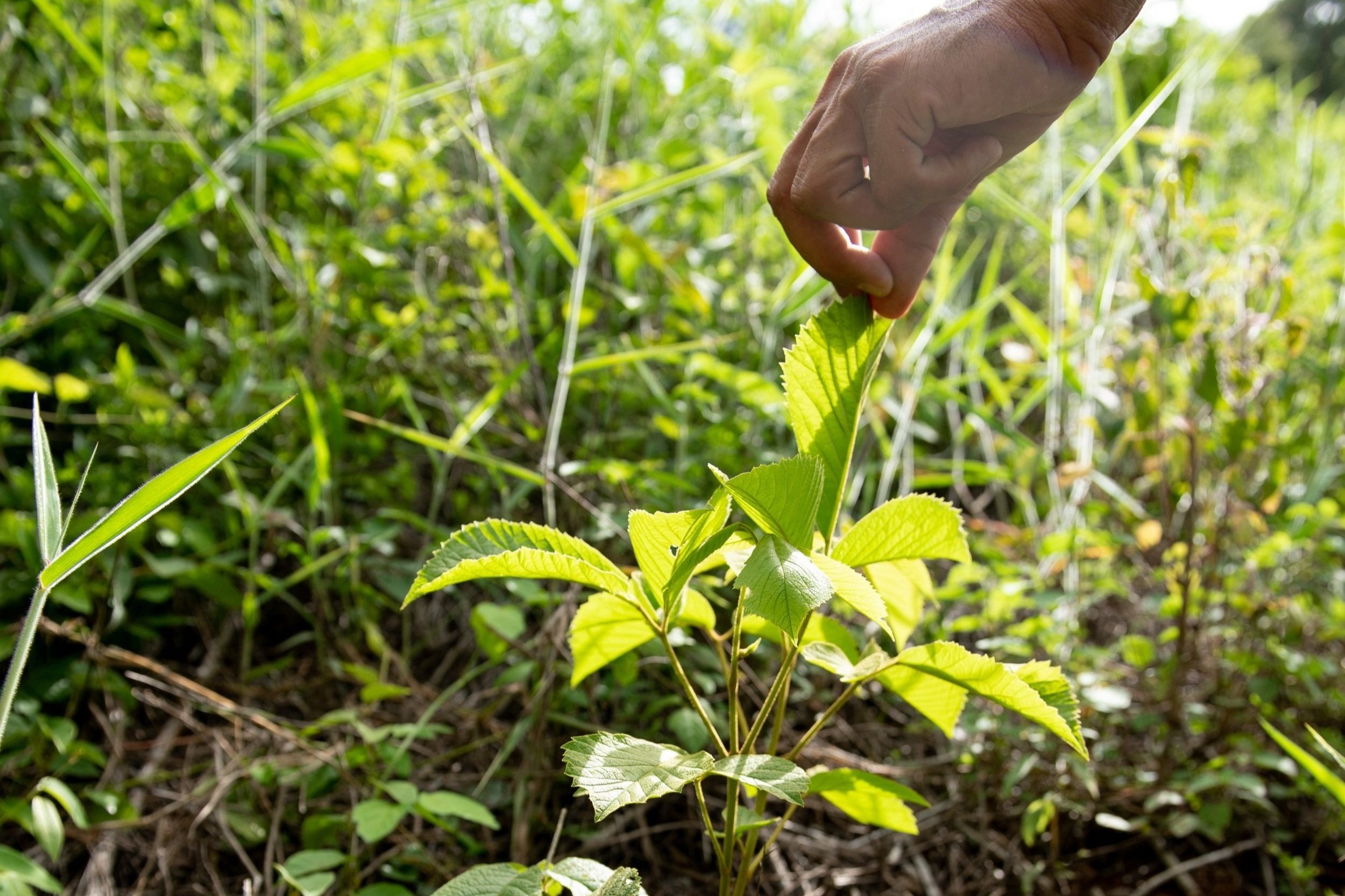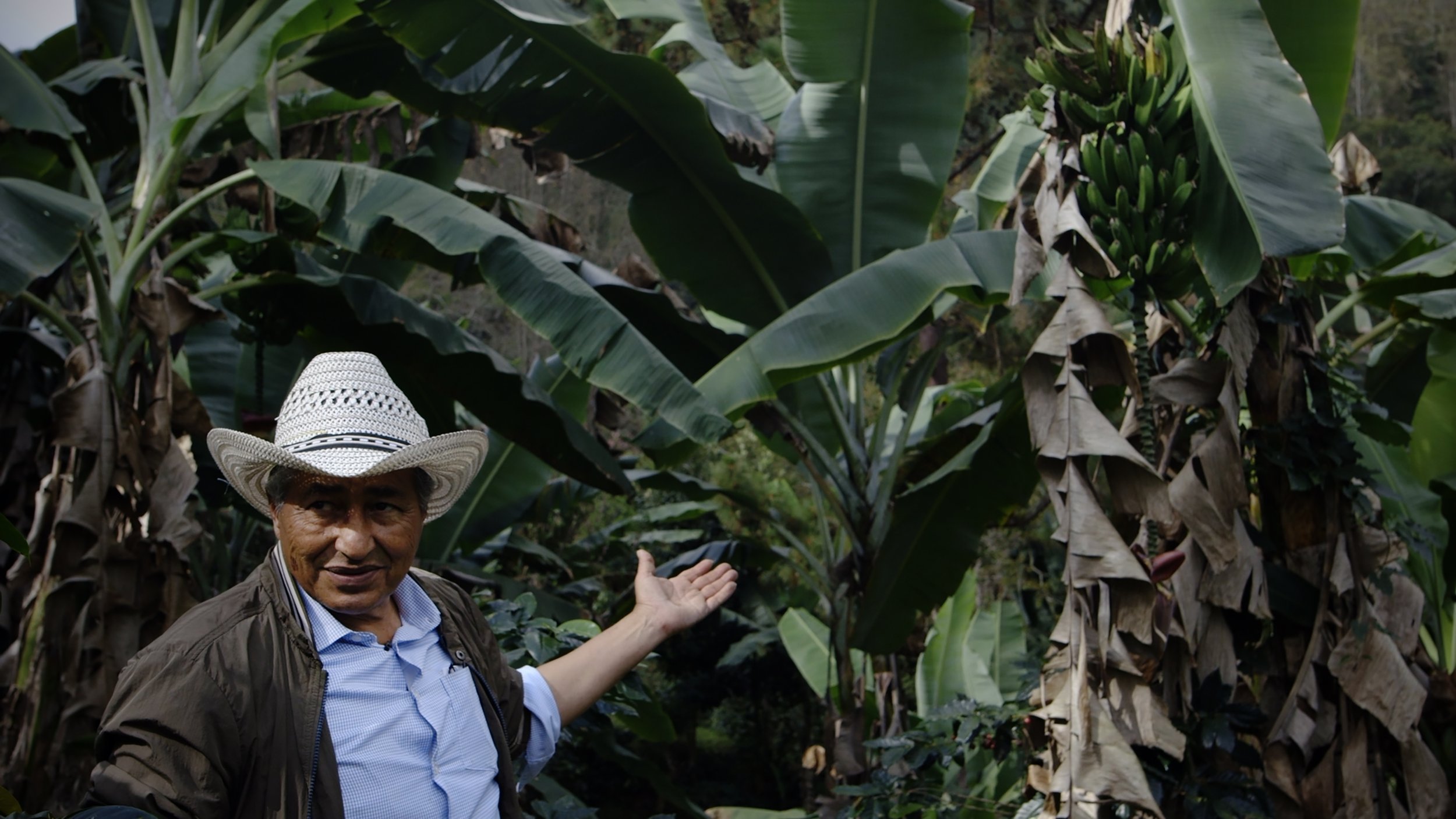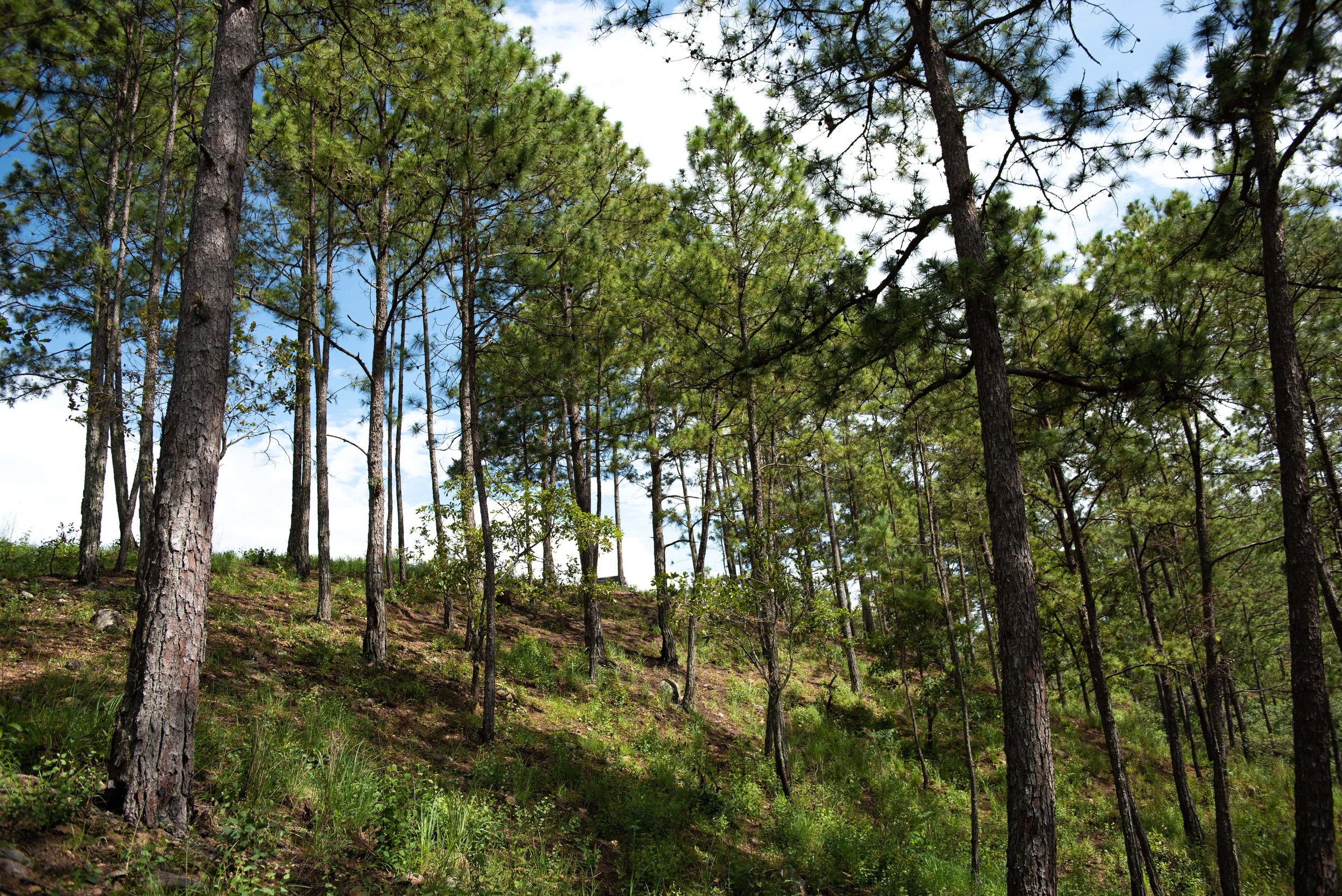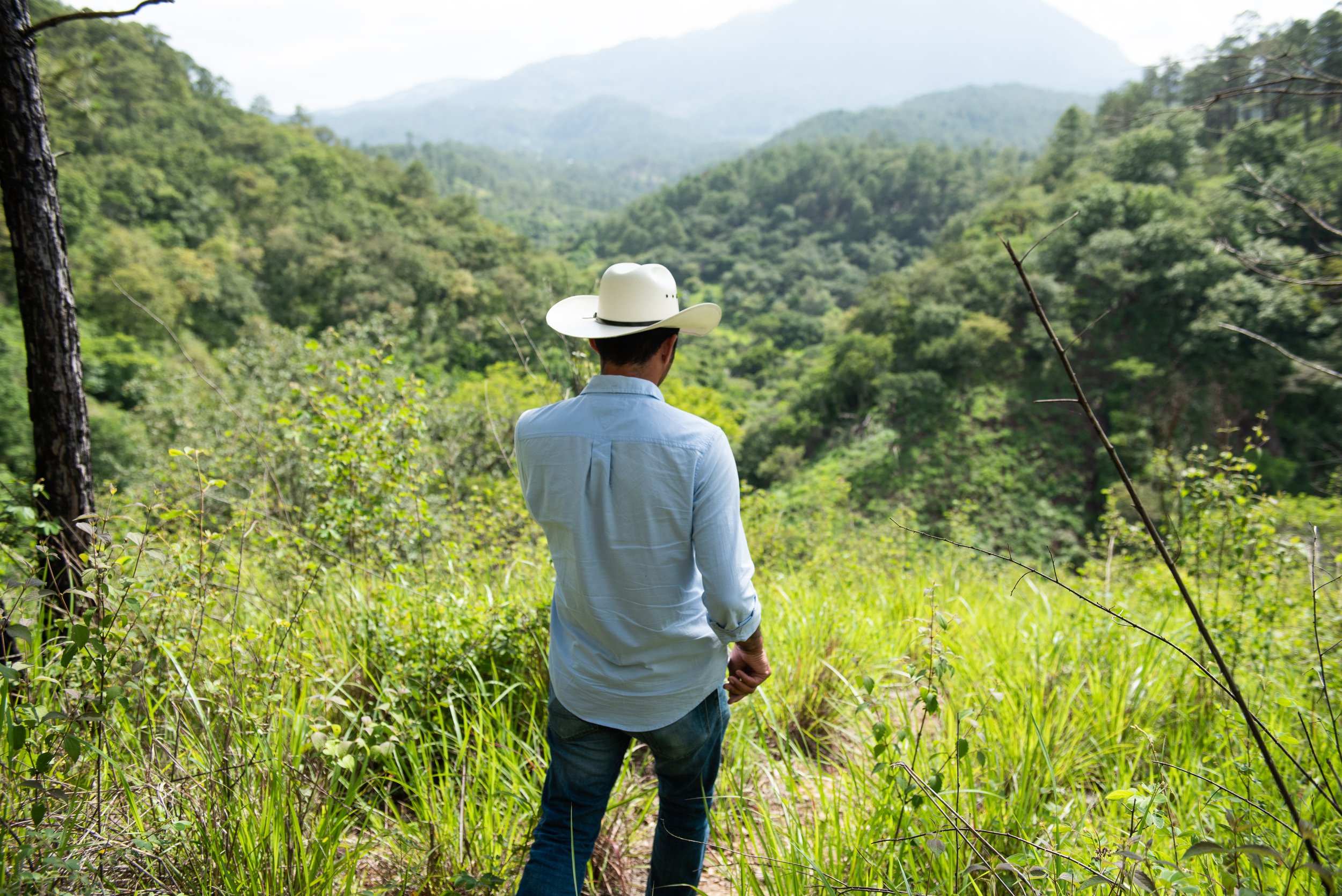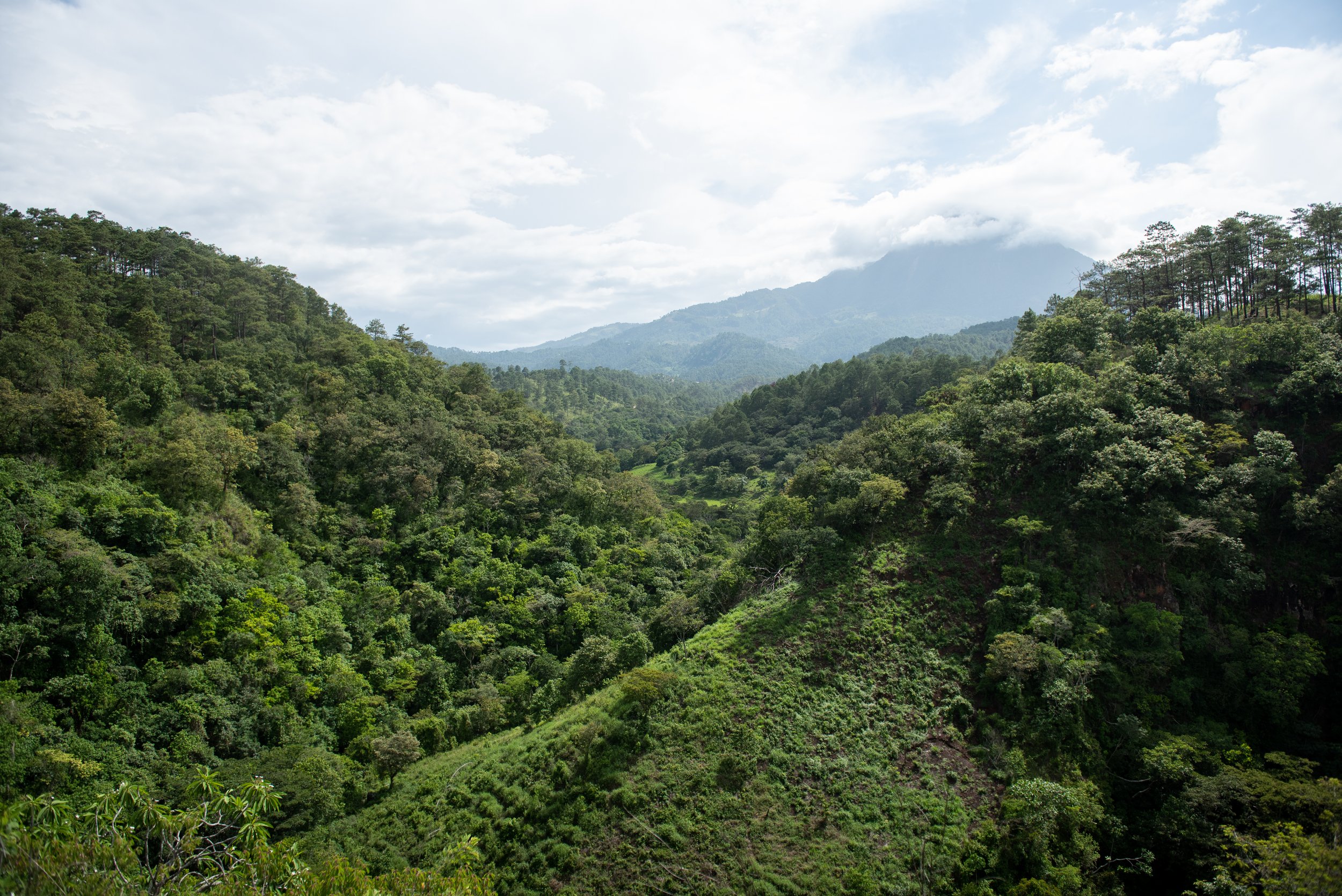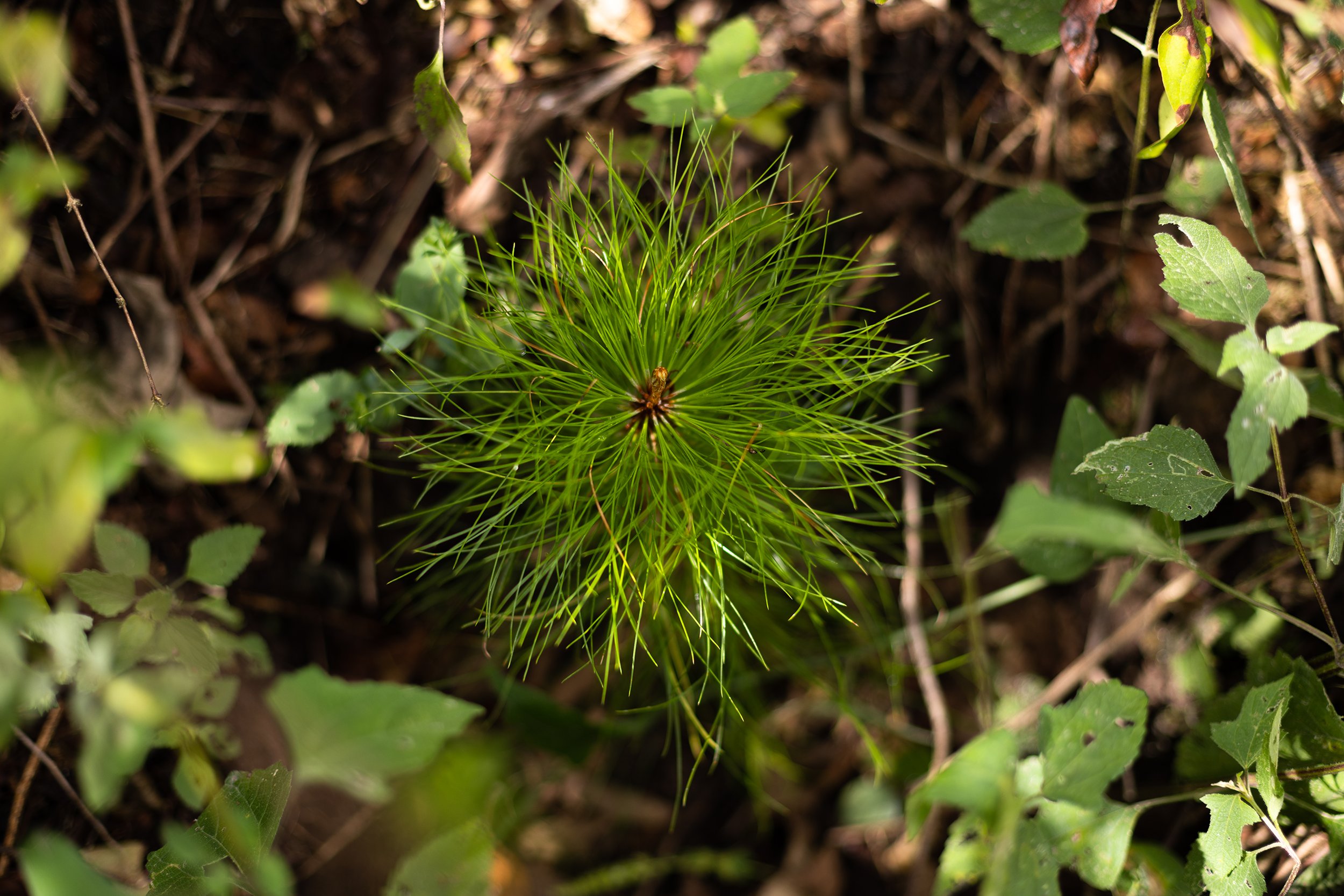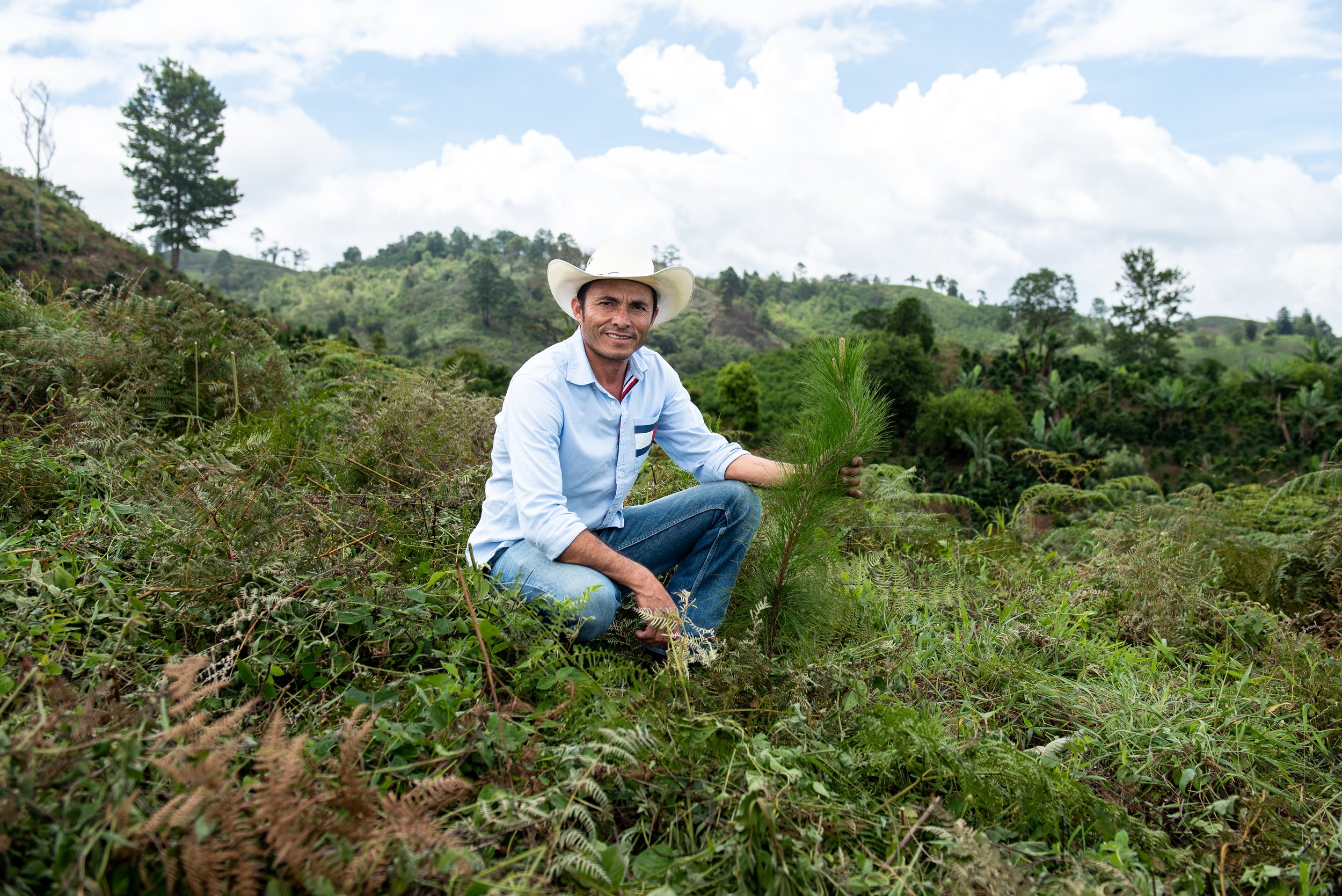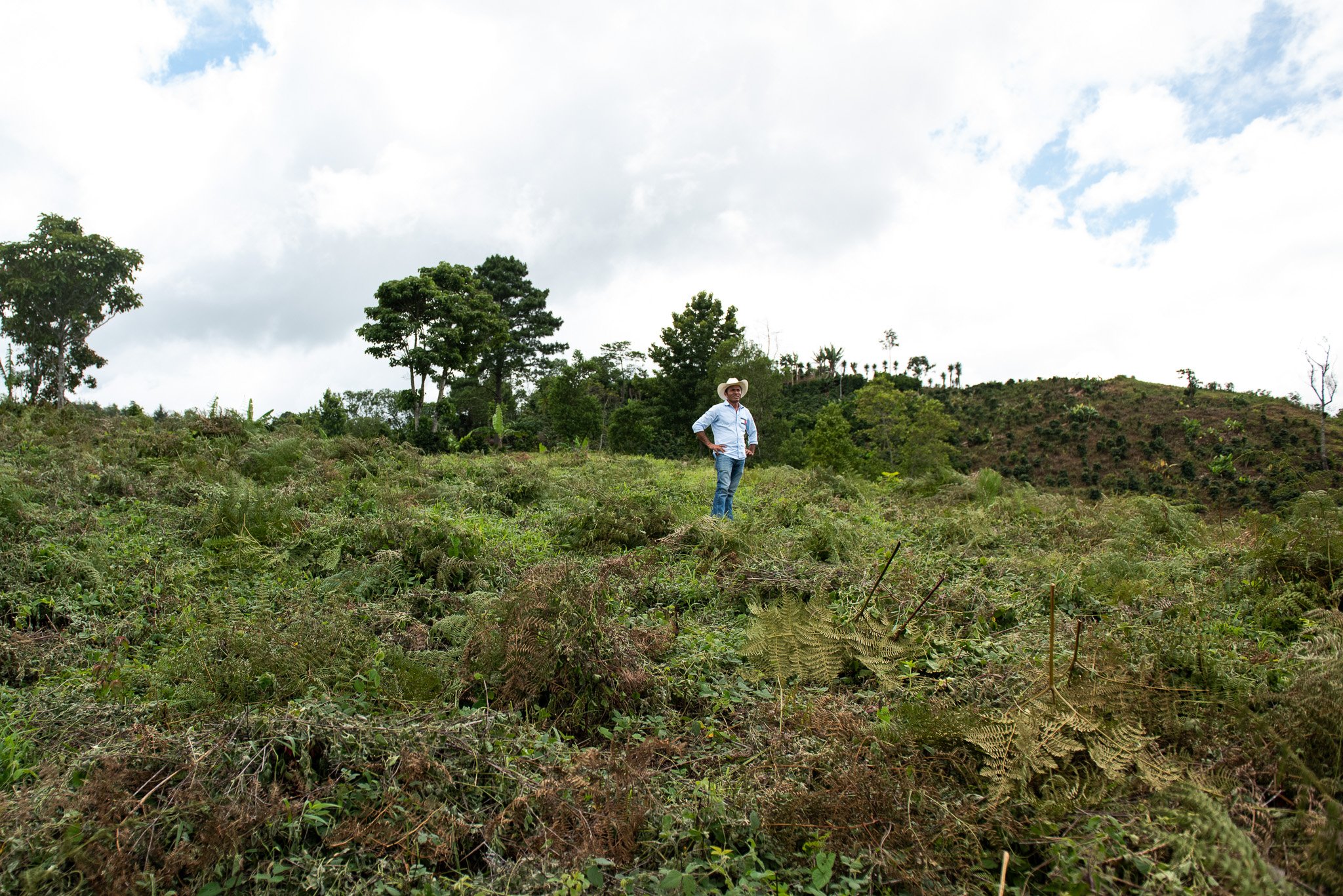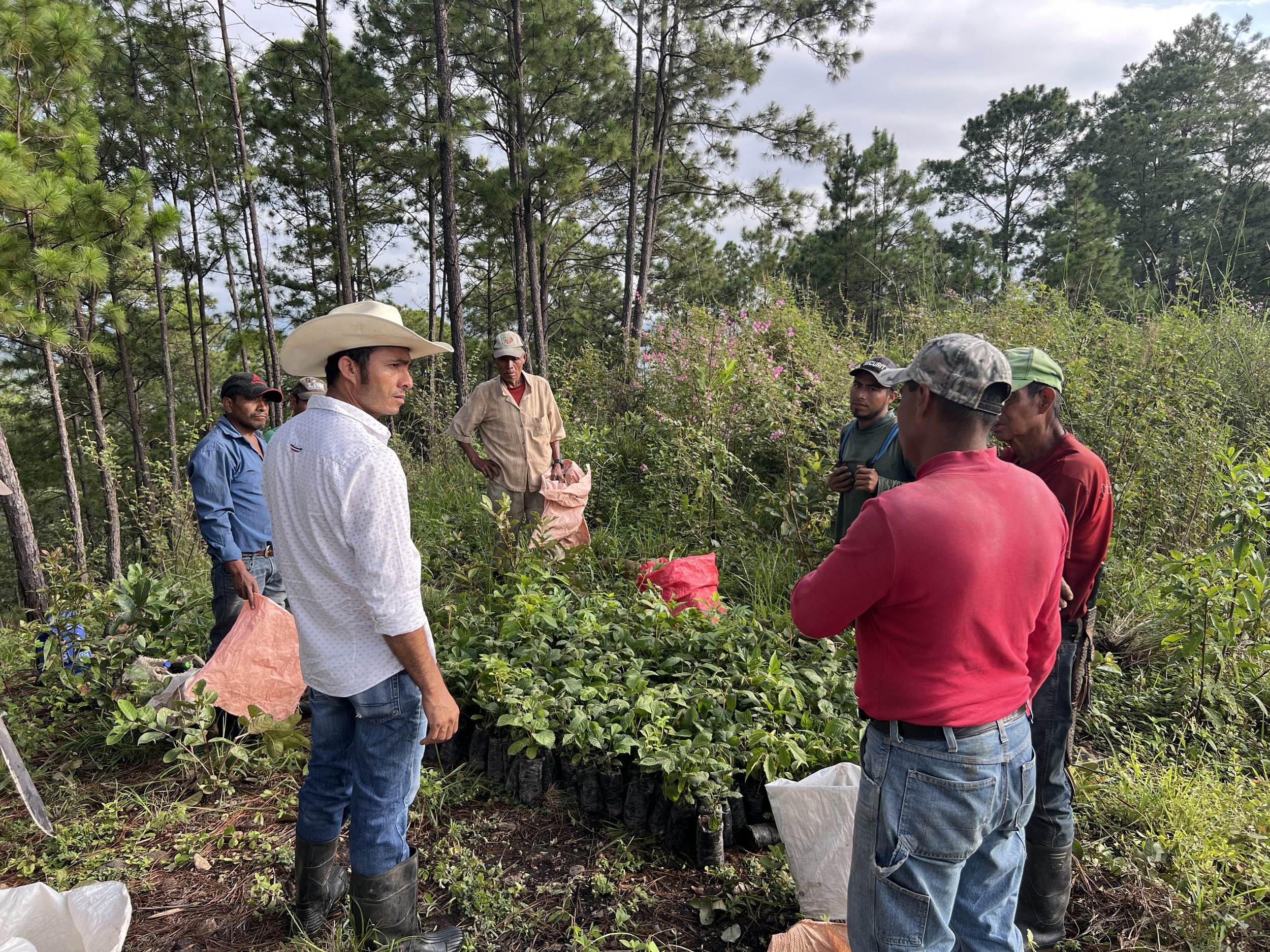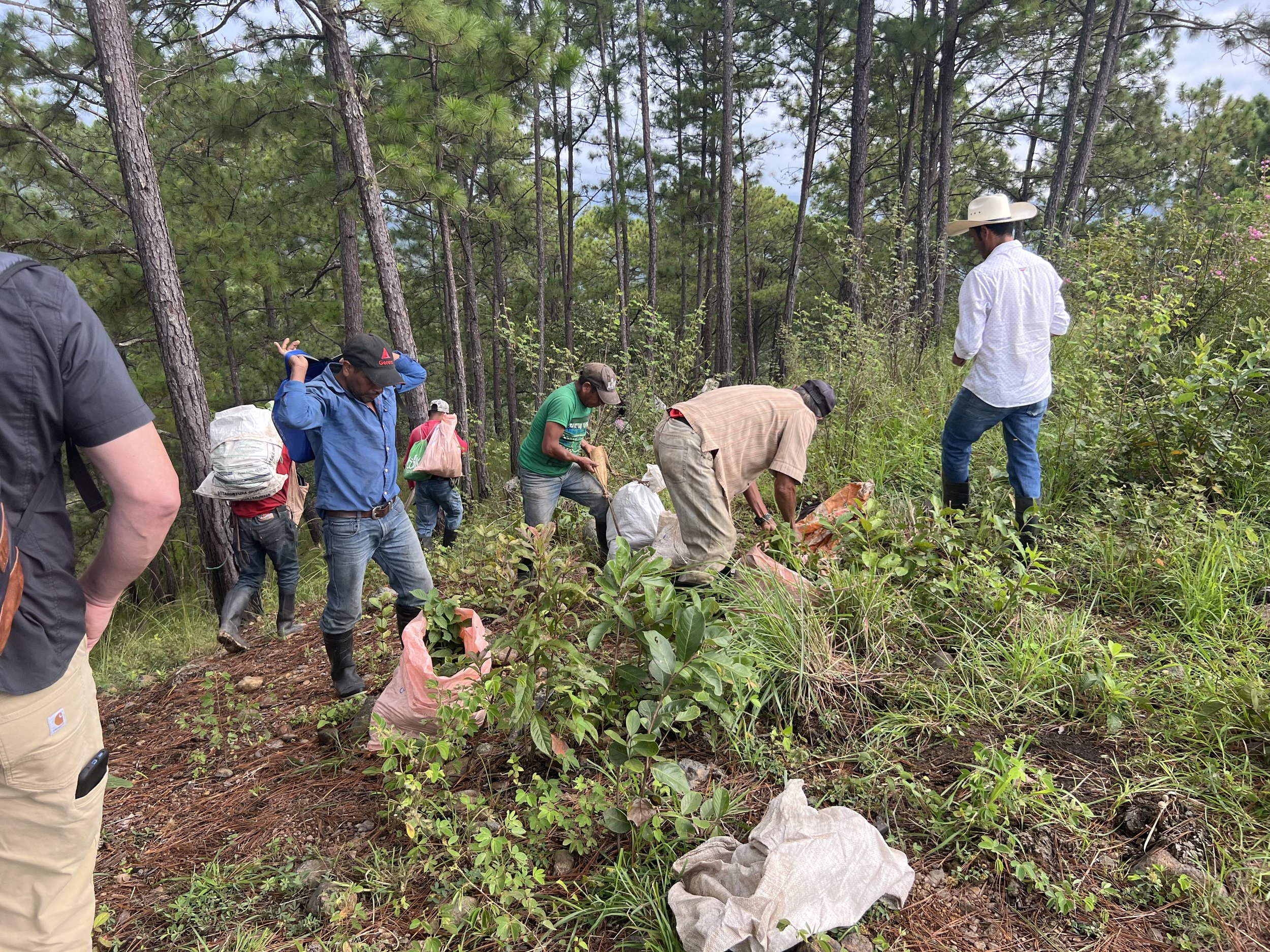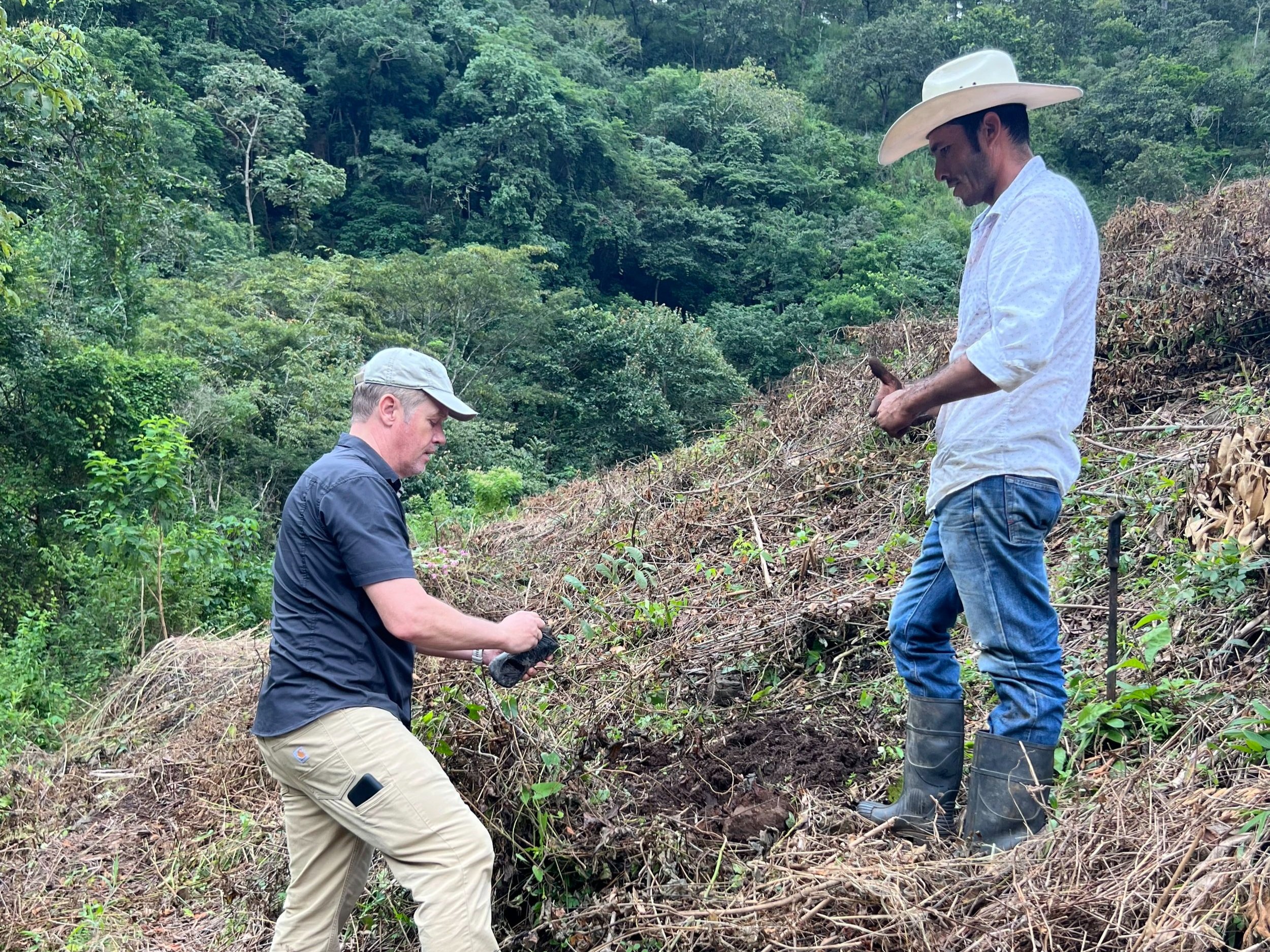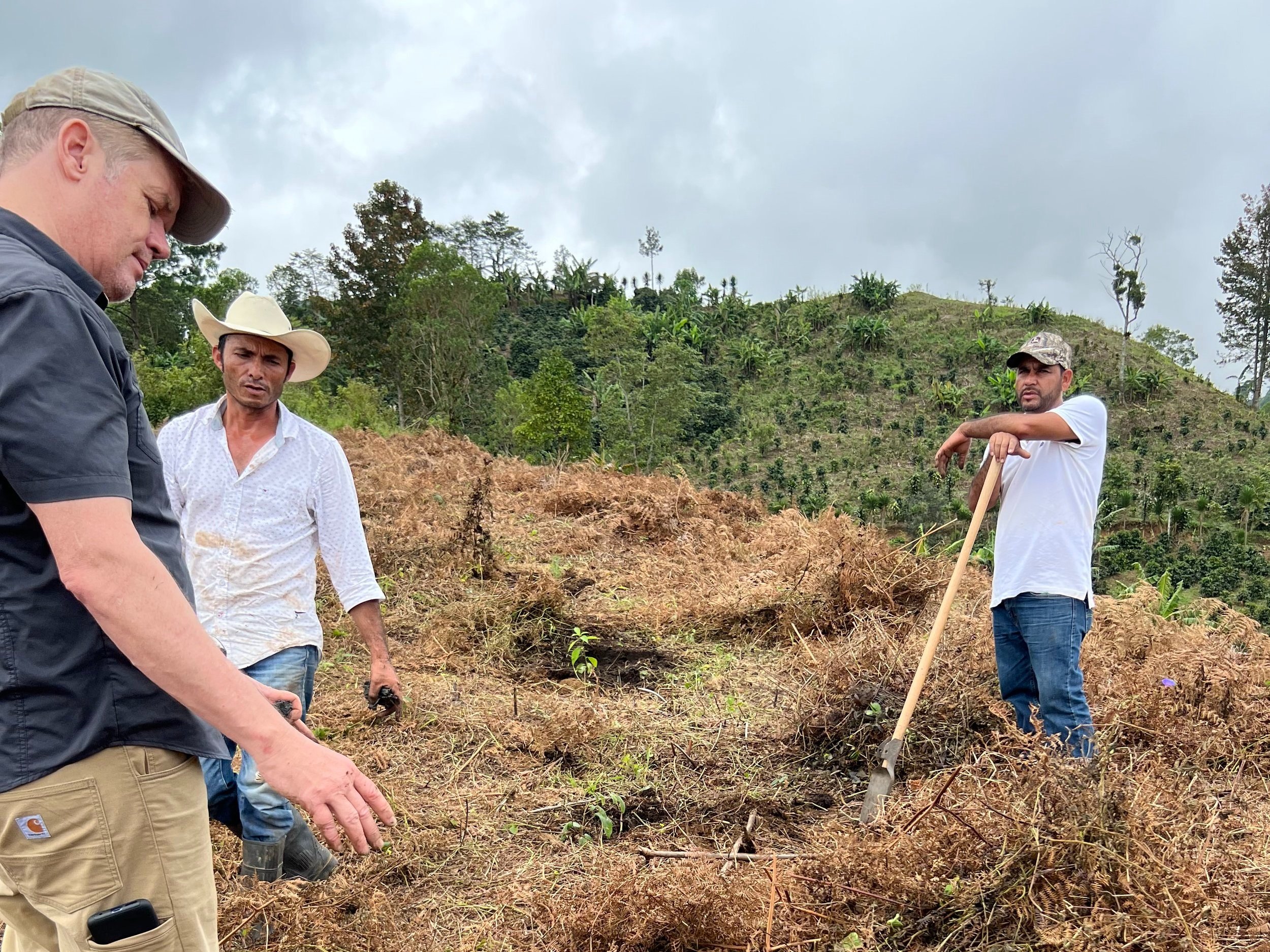Reforestation initiatives have become increasingly significant to address the environmental crisis and sustainability of natural habitats on a global scale.
In Honduras, reforestation is actually a vital practice to tackle ecological challenges such as deforestation, soil erosion, and loss of biodiversity. In addition to environmental challenges, local communities are often profoundly affected by disrupted ecosystems, decreased water quality, and increased vulnerability to natural disasters, landslides, and flooding.
We knew we had to take action, so we joined hands with roasters, producers, and members of our Honduran community to plant local and endemic trees in Copán, Honduras. We’re excited to be able to bring the coffee value chain together for one common goal that will support our communities’ long-term sustainability.
Reforestation in Honduras
The impacts of deforestation on the coffee industry have become a widely discussed topic, but it’s hard to determine the underlying causes. Deforestation, simply put, means clearing forested areas. However, the human aspect behind it is way more complex. Whether it’s cutting down trees for commercial developments, lumber trade, or in our industry’s case, planting more coffee trees, addressing the root of the problem is key to working towards long-term sustainable practices.
On the production level, we are proud to partner with like-minded producers; many of whom have protected forests and conduct ethical practices, both environmentally and socially. On the consumption level, we are fortunate to be part of a community of coffee roasters, baristas, Q-Graders, [and so much more] that is centered around ethical practices all across the supply chain.
We believe that in order to have the most widespread impact, our entire industry needs to get involved and take action, which is what makes our reforestation project so special. We have come together with clients and producers alike to break ground on our reforestation site in Copán, Honduras. The site will become COCAEER, a co-owned community mill to help raise quality and traceability standards for producers in the area. Reforesting the area surrounding it allows us to involve the community and work towards the common goal of protecting our local ecosystem, while still investing to improve the quality standards of Honduran coffee.
Our Reforestation Sites
COCAEER is located in the mineral-rich soils of Copán, making it a suitable environment for local trees to flourish. The ground is covered in a dense layer of organic matter, which allows the soil to store essential nutrients, such as nitrogen, that promote and improve plant development. Much of this organic matter comes from the endemic vegetation in the area, which we want to boost through reforestation practices.
Earlier this year, we planted over 5,000 trees of various native species, including pine, cedar, walnut, liquidambar, and more. We recently visited the reforestation site to check out the progress and needless to say, it was great to see how these trees have been developing. Our goal is to give back to the land for the coffee we receive and establish a new standard for regenerative agriculture & practices.
Aside from our COCAEER site, we are also working closely with Erik García, one of our long-standing producing partners, to reforest a portion of his farm, El Cedral, as well. So far, Erik has planted 400 Laurel, 200 Cortés Amarillo, and 33 Walnut trees on his farm, but there will surely be more! This is just the start of this journey!
What the future holds
This is as good a time as any to formally introduce you to Tiny Carbon, one of our close partners in this venture! They work in the Voluntary Carbon Market (VCM) to make carbon sequestration simple for everyone. As partners in our reforestation initiative, we are able to plant endemic trees to produce high-quality and fully traceable carbon credits. These credits represent a new source of revenue for local producers and a way to drive positive change and contribute to their community’s biodiversity and social indicators.
Consider this a sneak peek into the amazing things Tiny Carbon has in store for us in the near future! In the meantime, we are getting ready to plant another 5,000 trees in COCAEER and continue to support our producers in pursuit of a more sustainable future for Honduran coffee-growing communities.
If you’d like to get involved, feel free to drop us a message and stay tuned for more!
See you next time!


